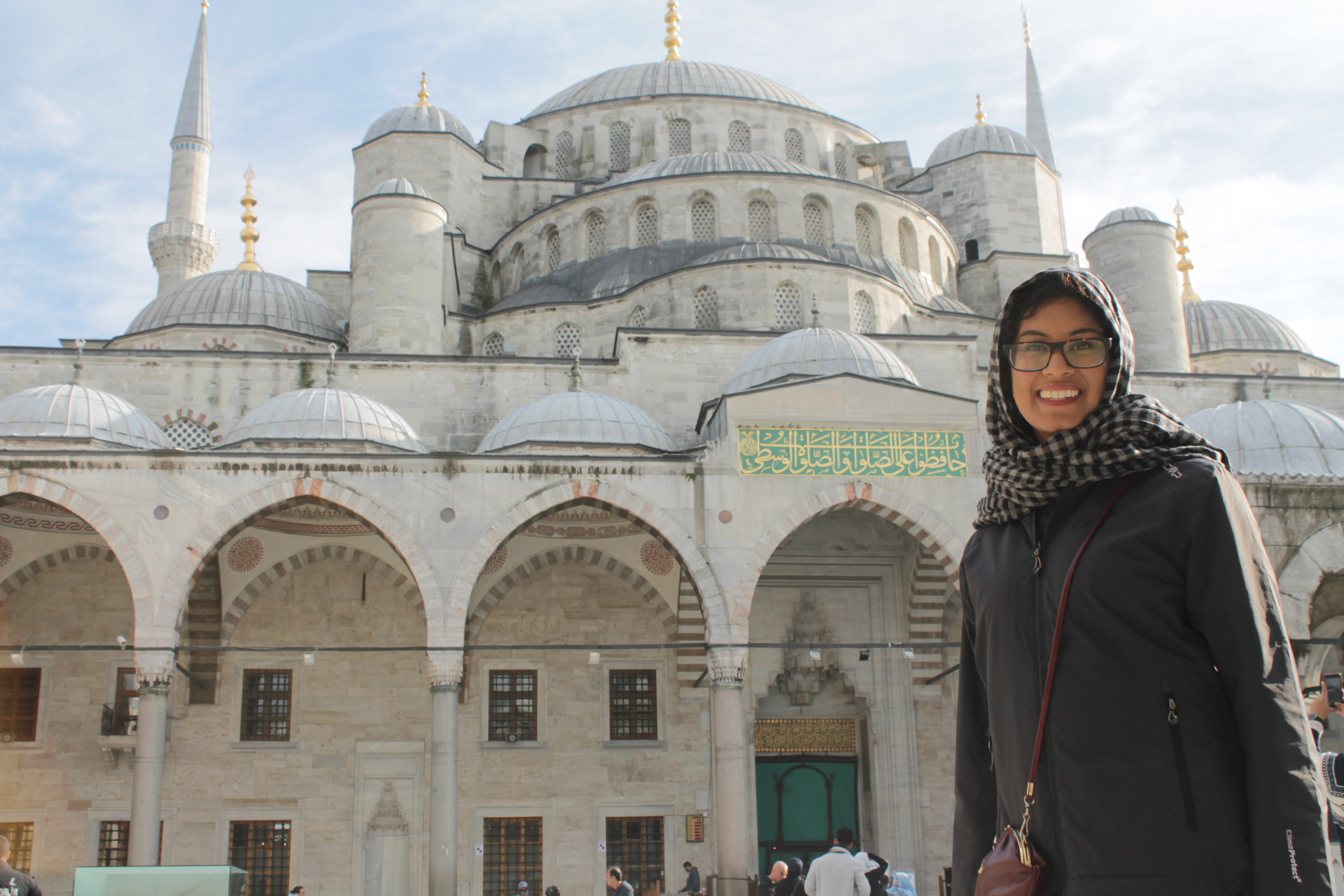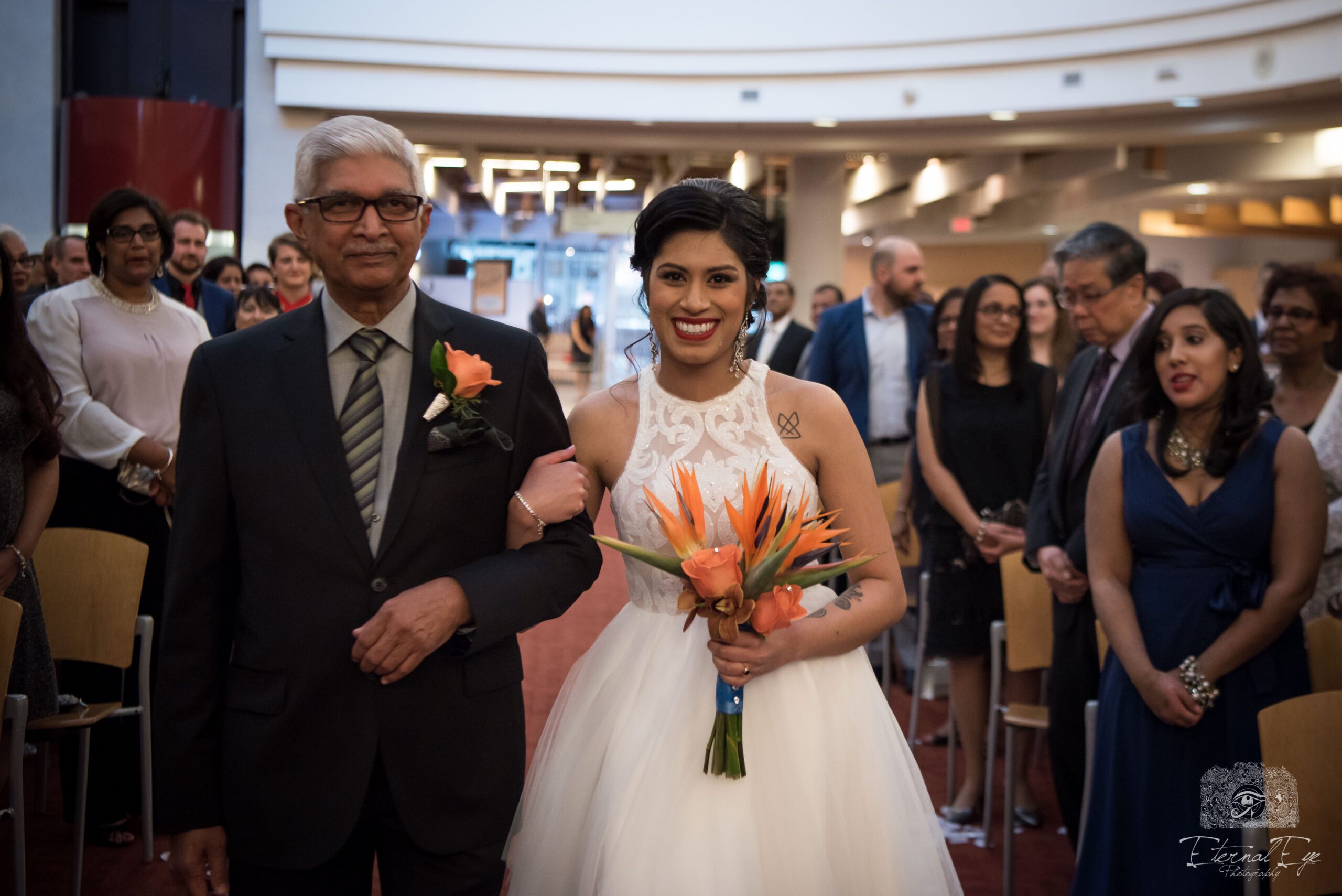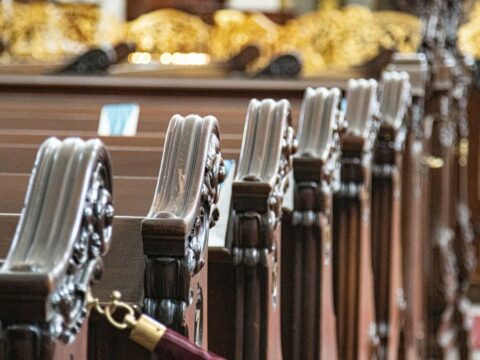Nearly every night, for as long as I can remember, I’ve clasped my hands in prayer before I go to bed. I was not raised in a religious household — my mother is Hindu and largely unobservant, while my father is Muslim but was largely absent throughout my childhood — yet I’ve always felt the urge to speak to something greater than myself.
Lately, my prayers have included a special blessing on behalf of my dad. He became seriously ill last year, and though he’s doing well now, a request he made when I was about 12 continues to echo in my head.
You may unsubscribe from any of our newsletters at any time.
“When I die,” I remember him saying, “I’d like for you to be able to pray for me.”
I know the prayer he means, the kind where I cover my head, speak a language that’s foreign to my tongue and face the Kaaba in Mecca. The kind I never learned, though I sat with my aunts and cousins and mimicked their movements the few times I attended mosque as a young girl.
More on Broadview: I’m learning to honour both my Muslim and Anishinabe sides
My relationship with Islam is complicated. During my childhood, I approached Eid al-Fitr, the end of Ramadan, like a secular Christmas: a yearly opportunity to see family, open presents and stuff my face with delicious food as we made the rounds of relatives. That was the extent of my involvement with my father’s faith, until I turned 15 and observed Ramadan on my own — only to be told by a relative that I was doing it wrong, no further guidance offered.
I was a stubborn teen. I backed away from that aspect of my father’s life. Eventually, I backed away from my father, only seeing him on my own terms. At times, months would go by without one of us picking up the phone; our relationship was battered by broken promises and a sense of abandonment. As I grew up, I’d stare wistfully at fathers minding their children the way some people covet a shiny new toy. Sometimes I was resentful. Mostly, I was determined to prove that I was doing just fine.
Still, the Muslim call to prayer, the azaan, which I heard in country after country as I travelled the world in 2017-18, triggered something in me. In Marrakesh, I was moved by the sight of rows of the devout moving in synchronicity during the evening prayer. In Istanbul, touring the mosques brought me peace. I experienced a yearning for ritual, a stirring of the heart.
When my father fell ill, I remembered his request.

First, I did what any millennial would do and Googled how to pray. I was quickly overwhelmed by the wealth of videos and websites. What I found left me feeling confused and lonely. I wanted to join with someone in prayer and feel the movements connect us to each other and to God. Ever since I was a child, I had whispered my prayers alone. Now, I needed a guide.
I needed my dad.
At first, I actually contemplated sending a text — my father and I communicate mostly through cat photos (mine) and WhatsApp greeting cards (his) — but quickly decided that was too awkward. Then COVID-19 came to Canada, and learning to pray took a backseat to dealing with a new world of anxiety and change.
When it became clear that coronavirus wasn’t going anywhere, I realized I had been craving a face-to-face spiritual experience, and learning to pray became indefinitely delayed. Zoom prayer wasn’t for me. But I still had a phone.
By the third weekend of May, Eid had rolled around again; a perfect reason to a) give Dad a call; and b) talk about religion.
“When I was younger, I remember you wanting me to learn how to pray,” I recall saying, once we had exhausted the usual pleasantries. “How do I do that?”
I don’t often surprise my father, but we don’t often speak about serious matters.
He gave me some practical tips — it might be easier to learn from a woman, have I thought about my friend from middle school? — and said over and over, “I’m glad.”
Ever since I was a child, I had whispered my prayers alone. Now, I needed a guide. I needed my dad.
When we hung up, I spent some time thinking about what I was truly hoping to accomplish. I felt unmoored, disconnected in my faith journey. I still couldn’t see my friend to start lessons. At best, Muslim prayer was another tool in the spiritual toolbox, a gift to my father I was happy to give. But I wanted more than that. I’m a journalist by training; I needed more context. In an ideal world, we’d have multiple conversations. So, a few weeks later, I called him back.
This time, I jumped in without the preamble. Was it important, I asked, that I be Muslim when I was born?
“Yes,” Dad said, without hesitation. Islam is generally passed down patrilineally; it was important to him to keep the tradition alive.
That’s when I found out that my father had whispered the azaan in my ear when I was a newborn, still in the hospital. It’s a ritual performed on new babies, but oral histories being what they are, my mother had always told me my paternal grandfather had whispered the words to me. I couldn’t help thinking that that was why the call to prayer could bring me to a standstill — and why I had sought out my father as my guide.
But why had my Islamic training stopped after a few visits to the mosque when I was a girl? At this, my dad started to say something, then paused.
“I didn’t try to teach you. I can’t butter it up. That’s what it is,” he said.
Part of his reluctance came from wanting me to have a good teacher, which was something I had never considered. He didn’t think he could play that role. The other part came from wanting me to come to faith on my own. I admired him for owning up to his inaction. I don’t have kids, but in that moment, I realized how one decision could set them up for a lifetime of searching for their spiritual path.
I also realized that in the past few weeks, my father and I had connected in a new way. We were talking about topics with substance. We were picking up the phone. Just last week, he surprised me with a call, and I remembered how much I enjoyed just talking to him.
This year, Father’s Day, like most celebrations marked during COVID-19, will be different. But one of us will travel halfway across the city, and we’ll stand two metres apart in the parking lot or the driveway, and see each other for the first time in months. And I’ll say a prayer of thanks for him.
I hope you found this Broadview article engaging. The magazine and its forerunners have been publishing continuously since 1829. We face a crisis today like no other in our 191-year history and we need your help. Would you consider a one-time gift to see us through this emergency?
We’re working hard to keep producing the print and digital versions of Broadview. We’ve adjusted our editorial plans to focus on coverage of the social, ethical and spiritual elements of the pandemic. But we can only deliver Broadview’s award-winning journalism if we can pay our bills. A single tax-receiptable gift right now is literally a lifeline.
Things will get better — we’ve overcome adversity before. But until then, we really need your help. No matter how large or small, I’m extremely grateful for your support.
Jocelyn Bell
Editor/Publisher













